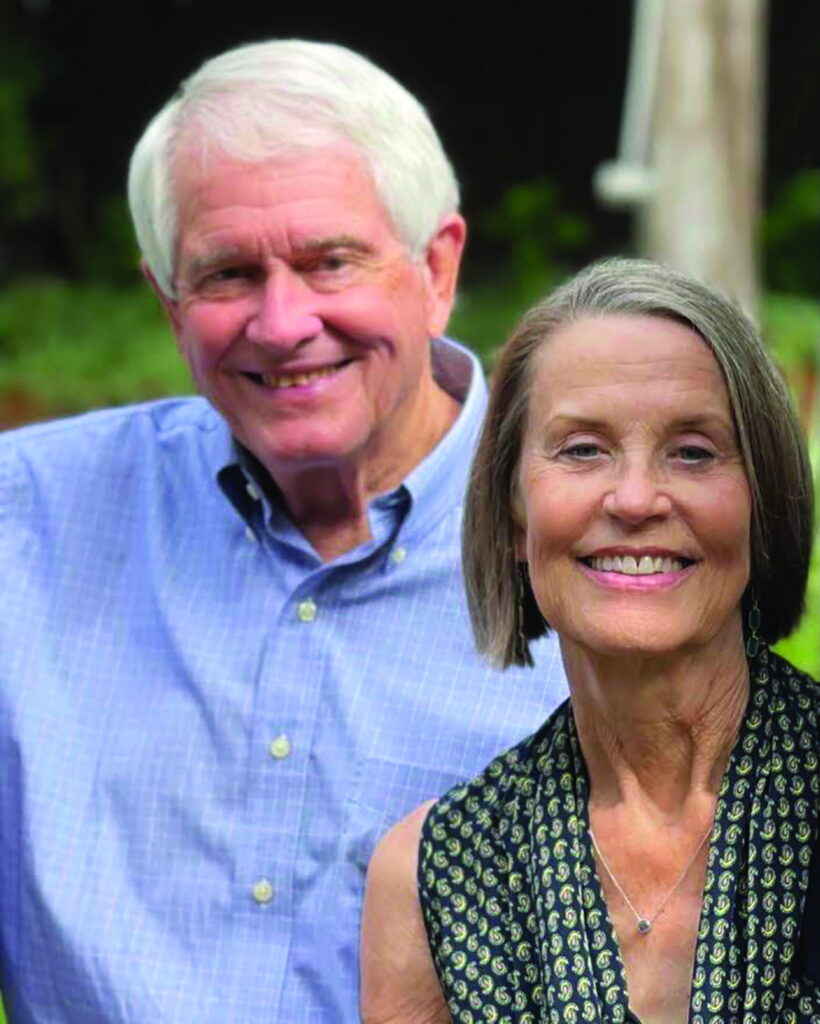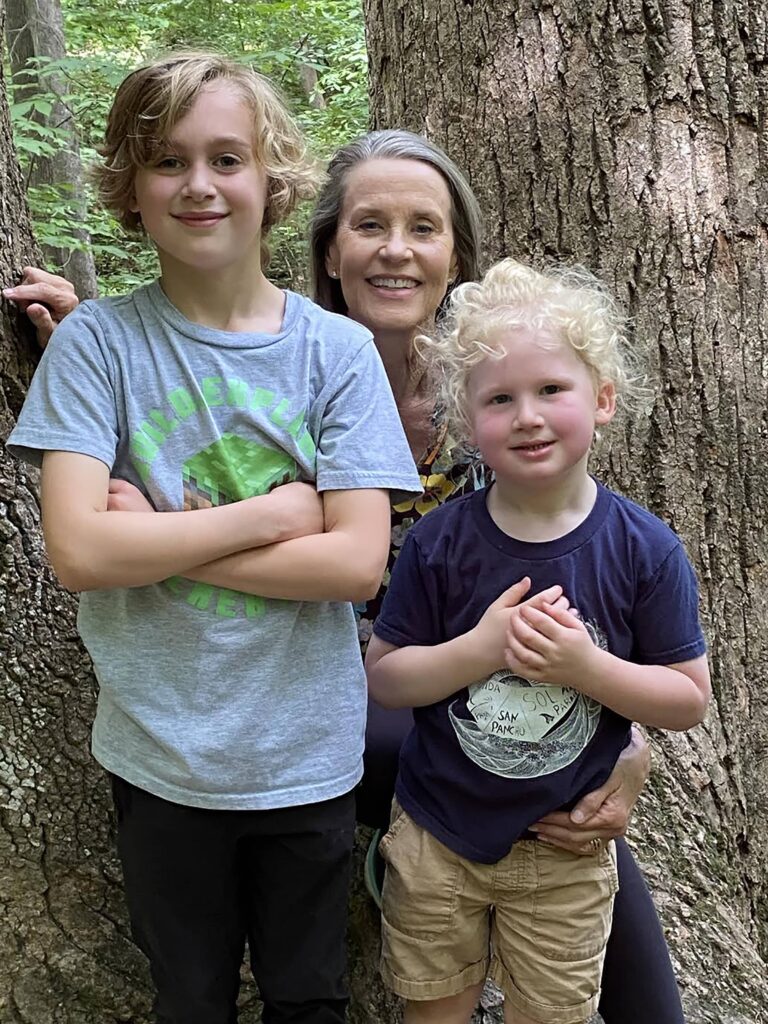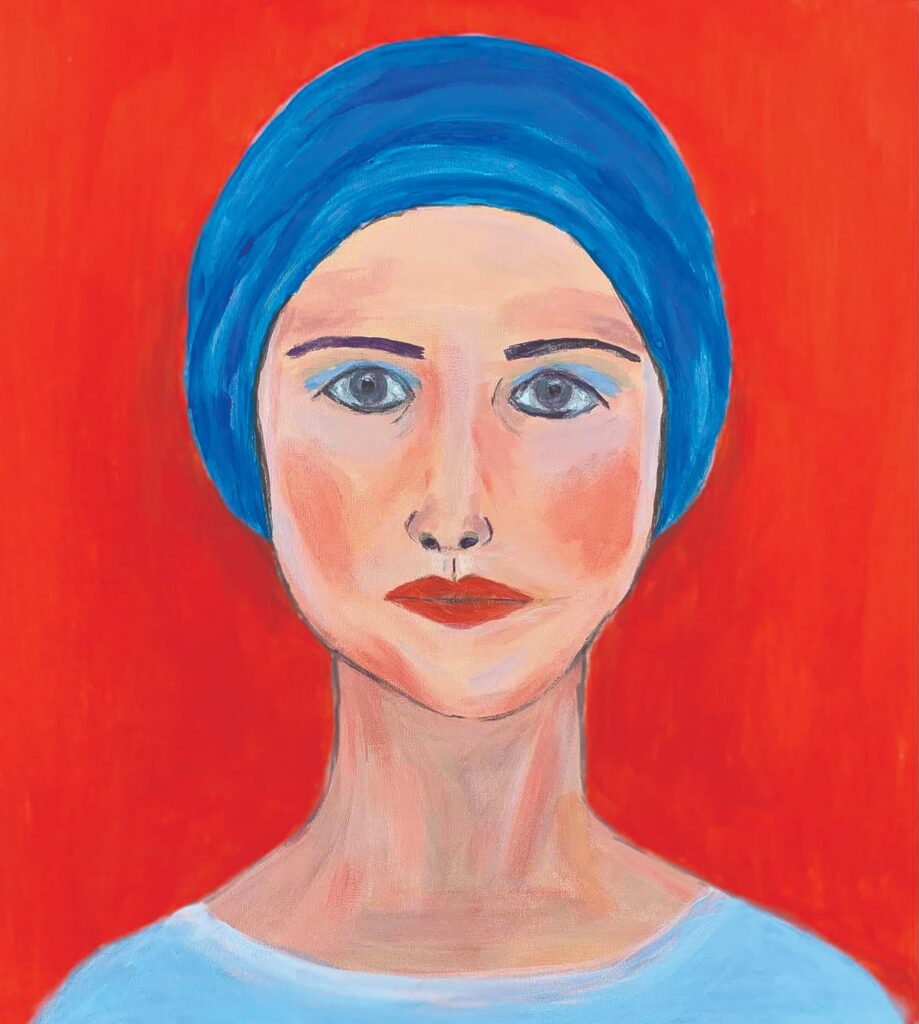
The latest chapter of Cindi Jolly’s life is one she is still in the process of writing. It’s not what she expected at 69, but the Wake Forest resident is learning to enjoy life’s twists and turns, even though it took a bout with rare nasopharyngeal cancer to do it.
In May, 2018, Jolly discovered a lump on her neck, and by November, it had grown. Her physician ordered several ultrasounds and later a CT scan. A biopsy of the right lymph node indicated squamous cell carcinoma, but an exploratory biopsy showed her head and nose were affected, and her team discovered the nasopharyngeal cancer had started there.
Facing a rare cancer, Jolly’s husband and children encouraged her to identify national research centers that could offer the best care options. Through this process and a network of personal and professional friends, she learned about UNC Lineberger’s head and neck oncology program.
Jolly said from the moment she talked with UNC Lineberger staff, she felt a sense of relief and calm, and credits her care team and family and friends with getting her into remission. The multidisciplinary approach of her team provided support for both the physical aspects and the emotional needs associated with her cancer.
“One day you’re working, taking care of your family, involved in community activities, and the next day you have cancer. You go through stages, very similar to any other traumatic experience,” she said.
Jolly noted how fortunate North Carolina is to have excellent care available to its residents, and she said her care team was at her side through her experience.

“My doctors, nurse practitioners and technical team knew just what to do and say at just the right time. Dr. Wendell Yarbrough and nurse navigator Hazel Hampton called me on New Year’s Day to discuss my tests results and next steps. The radiology oncology team, led by Dr. Bhisham Chera and Mary Knowles, APN, became my primary medical support system, attending to me throughout my treatment and recovery (simulation/creation of my face mask, feeding tube, daily radiation and weekly progress checks). Dr. Juneko Grilley-Olson and her nurse navigator, Stephanie Shea, carefully monitored my chemo and other infusion treatments each week.”
While Jolly’s health team took care of her physical body, she focused on completing her treatment and caring for her mind and emotional state. Early on, her family decided to divide support responsibilities, including treatments, doctor conferences, transportation and overnight stays at the SECU Family House. Family and friends sent her books, movies, podcasts and playlists, and she also explored meditation and acupuncture to help with both physical and emotional side effects. She praises her medical tech teams who played music like Bruce Springsteen, Bob Dylan, U2 and Linda Ronstadt during her radiation treatments. Jolly said “Music and meditation were great supports. You can’t think about being sick if your focus is on the Boss.”
Later in recovery, Jolly relied on authors like Brene Brown and Kate Bowler for inspiration but found that writing a memoir of sorts was the best way for her to pause and embrace life as a cancer survivor. Her memoir began during her treatments when she had the idea to keep a journal, but then became too sick to continue. Amid treatments, meetings with nutritionists, blood tests and feeding tubes, she would write a note here and there, and her children were taking notes along with other caretakers. They used the UNC portal to keep their notes current, and when she felt well enough, Jolly was able to go back and read through her journey from those who witnessed it.

“I feel good about the piece. I wrote it for me because it was cathartic to be able to think back through my experiences. Treatment for and recovery from nasopharyngeal cancer is long and difficult,” she said. “Although I certainly experienced physical pain, nausea and bone-weary fatigue, my emotional journey became increasingly important to me. I focused on being prepared for whatever the outcome might be. We knew that we couldn’t determine the outcome, but I might be able to choose how to deal with it. While I didn’t realize it at the time, this was an important shift that offered a more peaceful acceptance of my truth. COVID followed my recovery, and during the past two years, I also lost my father and sister. Writing has been a way to process all of this.”
In addition to writing, Jolly has also started painting. Her grandmother and great-grandmother were both oil painters, and Jolly signed up for an online painting class. She’s joined an artist’s community, and said she’s “very much an amateur” but enjoys spending time with the group and exploring a new skill-set.
Reflecting back on her experiences with cancer, Jolly sees opportunities to learn. “I began this cancer journey with grief and fear, moved to hope and trust, found courage and strength, and ended with a search for wisdom. Practically speaking, this has translated into being more mindful, something I thought I was doing, but wasn’t,” she said. “While my life priorities remain much the same, my husband and I have shifted our timelines to stay in the moment. I try to focus on what is most important in my life. I believe I’m going to live a long time, and what’s important is how I use that time. I’m being much more thoughtful about that part of my life.”
